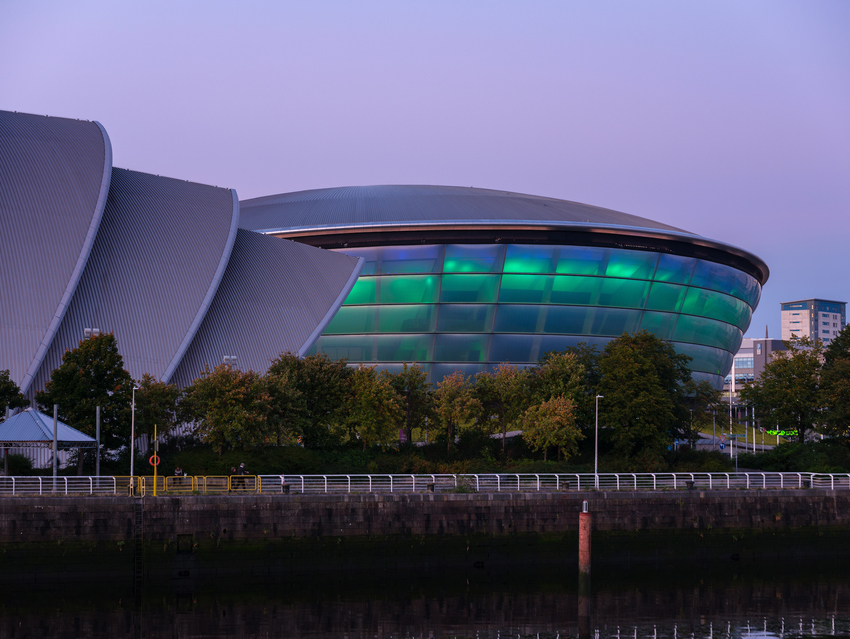Strategy to Support Future of Glasgow’s Cultural Sector Unveiled
10th Jul 2024
A new strategy which will support the future of Glasgow’s cultural sector has been unveiled.
Glasgow’s Culture Strategy 2024-30, approved by Glasgow City Council’s City Administration Committee, is designed to enable culture to shape and build the future health, prosperity and sustainability of Glasgow and its people.
The strategy was co-created by Glasgow Life in partnership with Glasgow’s Culture Forum through engagement and consultation with the city’s cultural sector. The strategy has four priorities: Glasgow’s cultural profile; cultural participation; creative skills; and sustainability.
Glasgow’s cultural sector will come together to learn more about Glasgow’s Culture Strategy 2024-30 and Action Plan on Wednesday 10 July at The Social Hub. Glasgow’s Culture Forum will also invite representatives from the sector to express their interest in joining its working groups and contribute to its Action Plan.
Glasgow is globally renowned as a cultural hotspot and was named the UK’s top cultural and creative city by the European Commission in 2019, as well as Britain’s first UNESCO City of Music in 2008. Glasgow is the cultural and production powerhouse of Scotland – four of Scotland’s five national performing arts companies are based in the city.
The cultural pull of Glasgow can be seen in the number of Scotland’s creatives who call the city home: 41% of its actors, dancers and broadcasters live in Glasgow, while 38% of the country’s musicians and 29% of its artists and graphic designers also stay in the city. Glasgow was also recently ranked the seventh-best city in Europe for a new creative career by Adobe Express, with many graduates choosing to remain in the city after finishing their studies.
The city boasts a broad cultural offer and is home to more than 100 cultural organisations and over 20 museums and art galleries, including the 2023 Art Fund Museum of the Year, The Burrell Collection. In June, Glasgow Life venue Tramway welcomed Turner Prize nominee Delaine Le Bas’ Delainia: 17071965 Unfolding exhibition as part of the Glasgow International festival.
Glasgow is known for its culture – almost 90% of Glaswegians take part in some kind of cultural activity every year, with more people visiting the city’s museums annually compared to any other UK city outside of London. Glasgow’s Mitchell Library is also one of the largest public reference libraries in Europe, containing more than one million items.
Glasgow also hosts some of the most well-known and popular cultural events and festivals in the country, including Celtic Connections, Glasgow Film Festival, Glasgow International Comedy Festival, Aye Write, Glasgow International, Glasgow Mela, TRNSMT, Merchant City Festival and the World Pipe Band Championships.
Bailie Annette Christie, Chair of Glasgow Life and Glasgow City Council Convenor for Culture, Sport and International Relations, said:
Culture makes a crucial contribution to Glasgow’s economy and draws visitors to the city from near and far. Glasgow’s Culture Strategy 2024-30 will ensure culture and creativity continue to be valued and invested in. This strategy will help Glasgow to share its distinctive, gallus culture with the world and invite others to share theirs with the city.
Thanks to the invaluable insights of Culture Forum members, the strategy focuses on key priorities, from supporting the city’s cultural profile and making it easier to get involved in cultural activities, to developing creative skills by retaining talent and attracting and nurturing more young creatives in Glasgow. Sustainability is another vital part of this work; supporting Glasgow’s cultural sector to develop its green credentials will secure its future so it can be enjoyed by generations to come.
Glasgow’s Culture Strategy 2024-30 can be read in full on the Glasgow Life website.


